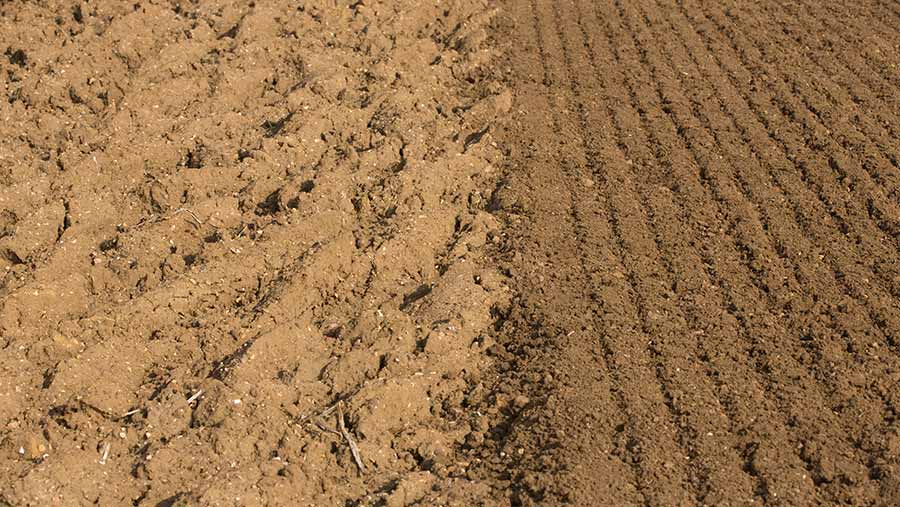Five issues to resolve before we can trade natural capital
 There is no standard yet for measuring or pricing soil carbon © Tim Scrivener
There is no standard yet for measuring or pricing soil carbon © Tim Scrivener An extraordinary opportunity is emerging in the form of natural capital markets, but five main challenges have to be overcome before responsible trading schemes can be launched, according to one sustainability expert.
Speaking at the East of England Farming Conference on Thursday (18 November), Ben Gummer urged farmers to engage as natural capital trading schemes are developed, so that the industry keeps control of such an asset and gets rewarded for understanding soil, carbon and biodiversity.
See also: What’s the market like for farms with natural capital?
“Think hard and fight hard to get your voice heard,” he urged. “This is a huge opportunity, but it comes with multiple challenges and significant risk. If it goes wrong in the early stages, a reputational problem will develop around natural capital assets.”
Mr Gummer, the co-founder of natural capital business Sward, said the shape of the opportunity could not be determined until five challenges were resolved:
- Data Accuracy The best way of determining and measuring soil carbon is still to be agreed, as is a consistent price for carbon. Without these, there is no way of knowing how much is in the soil and what it’s worth.
- Measurement Knowing whether process or output is being measured will be required for future schemes, so that any rewards reflect that something has been produced, rather than just for doing something different.
- Operational carbon versus sequestered carbon Understanding the differences between these is essential for farming schemes, so that they can show what is being delivered rather than how much carbon is being saved.
- Private/public funding Until the intersection of private/public funding has been agreed, farming might not be allowed to take advantage of both sources and the government could kill any emerging markets.
- Regulation Whether regulation surrounding natural capital markets is national or global is still to be determined, with the preferred option being a global soil standard with reference to the local environment.
Given the speed of development, all farmers should start measuring soil carbon, Mr Gummer advised.
“Get a correct baseline by doing proper, deep coring soil analysis and taking account of its stone content. You can’t do this from space.”
Responsible trading schemes, when they are ready, will be recognisable by the quality of data accuracy and the fact that the farmer remains in control of his asset, he added.
“Farmers, not supermarkets, must own this. So ask yourself – will it allow you to trade in the market at the best price?”
Ben Gummer
Ben Gummer was speaking at the East of England Farming Conference in Peterborough. As well as farming in Suffolk, he is chairman and co-founder of Sward, which helps farmers and landowners understand, manage and market their natural capital assets. He previously served in government as Cabinet Office minister and in the departments of health, education and international development, and ran a sustainability consultancy advising multinational companies around the world.
